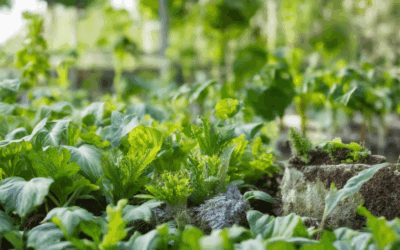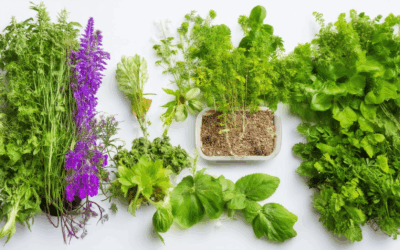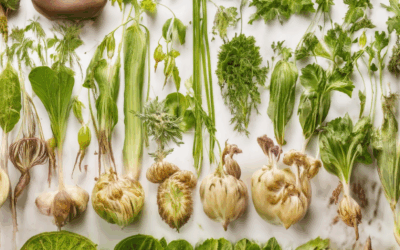Exploring the world of gardening can be an exciting journey, especially when discovering the unique charm of non-GMO heirloom plants. These distinctive varieties offer a blend of historical lineage, health benefits, and vibrant flavors that make them a fascinating choice for gardeners seeking sustainability and nutritional value. From tomatoes to peppers, heirloom plants bring a rich heritage to your garden while providing a healthier alternative to conventional hybrids. In this article, we delve into what non-GMO heirloom plants entail, their advantages, and how to select the perfect ones for your space. Whether you’re a seasoned gardener or new to the world of heirloom seeds, this guide will walk you through everything you need to know to get started. We’ll also discuss where to find these unique plants, ensuring you have access to high-quality options that align with your gardening goals. Join us as we uncover the secrets behind non-GMO heirloom plants and how they can enrich your life and your garden.
Key Takeaways
– Non-GMO Heirloom Plants: Traditionally bred plants that haven’t undergone genetic modification, emphasizing natural breeding methods.
– Benefits: Preserve historical varieties, support sustainable agriculture, and offer potential health benefits through higher nutrient levels.
– Where to Buy: Available at local farms and online stores, such as [OldSeed.org], for access to authentic seeds.
– Considerations: May have lower yields and susceptibility to diseases but are cherished for their unique history and flavor.
Understanding Non-GMO Heirloom
Non-GMO heirloom refers to plants that are both heirloom and not genetically modified. Heirloom plants are those that have been passed down through generations, typically preserved through open pollination rather than hybridization or genetic modification. Non-GMO means these plants have not undergone genetic engineering or other processes that alter their genetic makeup.
Heirloom plants are known for their resilience, unique characteristics, and often superior flavor due to their adaptation to specific environments over time. By specifying “non-GMO,” this term emphasizes that these plants remain true to their natural state without the intervention of modern biotechnology.
This designation aligns with traditional farming practices and may appeal to individuals who prefer naturally grown, sustainably cultivated plants. Non-GMO heirloons are often sought after by gardeners and farmers who value natural methods and seek to avoid products of genetic modification.
In summary, non-GMO heirloom plants are traditional, naturally bred varieties that have not been genetically altered, making them a choice for those advocating for natural and sustainable growing methods.
Is It Illegal to Save Heirloom Seeds?
Saving heirloom seeds can be legal or illegal depending on the circumstances. Here’s a breakdown:
- Patented or Proprietary Seeds :
If the seeds you want to save are patented or belong to a company (e.g., hybrid or genetically modified varieties), saving them without permission may violate intellectual property laws. These seeds often come with specific agreements restricting their use and distribution. - Open-Pollinated Seeds :
Open-pollinated heirloom seeds are generally legal to save. These seeds reproduce naturally without human intervention, making them free from patent restrictions. Farmers and gardeners can easily collect and replant these seeds. - Non-GMO Heirlooms :
Non-genetically modified heirloom seeds are typically safe to save. However, always verify the seed’s origin and ownership to ensure compliance with local regulations. - Regional Laws :
Local laws may impose additional restrictions. Check with agricultural authorities in your area to understand any specific rules regarding seed saving. - Reputable Sources :
To avoid legal issues, purchase heirloom seeds from trusted sources that offer proper licensing when required. This supports lawful trade and respects intellectual property rights.
By understanding these factors, you can legally and ethically save heirloom seeds while contributing to biodiversity conservation.
What Makes a Plant an Heirloom?
An heirloom plant is one that has been passed down through generations due to its unique qualities and value. These plants are cherished for their historical significance, distinctive traits, and ability to thrive in diverse conditions.
Characteristics of Heirloom Plants
- Historical Value: Heirloom plants often have a rich history, sometimes dating back centuries. They carry stories of their origins and the families who have nurtured them.
- Unique Traits: Heirlooms exhibit distinct features, such as unusual colors, shapes, or flavors, making them stand out from modern varieties.
- Adaptability: These plants are known for their resilience, thriving in various climates and soil types, making them reliable crops.
- Aesthetic Appeal: Many heirlooms are visually striking, with vibrant colors and intricate patterns that attract gardeners and chefs alike.
- Culinary Excellence: Heirloom vegetables and fruits are prized for their flavor, often offering a more intense taste compared to hybrid counterparts.
- Conservation Efforts: Preserving heirlooms helps protect biodiversity and ensures genetic diversity in our food supply.
Why Heirloom Plants Are Valued
- Sustainability: Heirloom plants require less synthetic intervention, aligning with eco-friendly gardening practices.
- Biodiversity: By growing heirlooms, we support genetic diversity, which strengthens ecosystems and crop resilience.
- Heritage Preservation: These plants connect us to our ancestors and the cultural richness of earlier times.
Growing and Preserving Heirlooms
- Heirloom plants often require more attention and care, but the effort is rewarding with bountiful harvests and unique produce.
- Seed saving is a vital part of heirloom cultivation, allowing future generations to continue the legacy.
- Explore our collection of heirloom seeds to find the perfect plants for your garden.
By understanding and appreciating these aspects, you can better cherish and nurture heirloom plants, ensuring their continued presence in our gardens and kitchens.
What is a Non-GMO Plant?
A non-GMO plant is a crop variety that has not undergone genetic modification. These plants are typically propagated through traditional breeding methods, which involve selecting and cultivating plants based on desirable traits passed down through generations rather than laboratory alterations.
Characteristics of Non-GMO Plants
- Traditional Breeding : Non-GMO plants are developed using age-old techniques such as selective breeding, hybridization, and crossing. This method relies on natural processes to create new varieties.
- No Genetic Engineering : Unlike genetically modified organisms (GMOs), non-GMO plants do not have their DNA altered to introduce foreign genes. This means their genetic makeup remains intact and unchanged from their natural state.
Benefits of Non-GMO Plants
- Heirloom Seeds : Many non-GMO plants are heirloom varieties, preserving centuries-old strains that offer unique flavors, hardiness, and nutritional profiles.
- Sustainable Agriculture : Non-GMO crops often require fewer synthetic chemicals, promoting eco-friendly farming practices that protect biodiversity and reduce environmental impact.
- Health-Conscious Eating : Some non-GMO plants may retain higher nutrient levels due to traditional breeding, potentially offering healthier dietary options.
Common Misconceptions
- Cross-Contamination : While strict regulations prevent GMO contamination in non-GMO crops, trace amounts can sometimes occur due to shared equipment or nearby fields.
- Labeling Issues : Products labeled “non-GMO” must meet specific standards, though verification processes can vary depending on the region and regulatory body.
Why Choose Non-GMO?
When selecting seeds or plants, many consumers opt for non-GMO varieties because they align with personal values, dietary preferences, or concerns about food safety and environmental sustainability.
By supporting non-GMO plants, you contribute to a farming tradition that emphasizes resilience, flavor, and ecological balance, ensuring a healthier planet and a richer harvest.
Disadvantages of Heirloom Seeds
While heirloom seeds offer unique benefits, they also come with certain drawbacks:
- Susceptibility to Diseases : Heirloom seeds are often more vulnerable to pests and diseases compared to hybrid varieties. This is because they have not been selectively bred for disease resistance, making them less reliable in challenging growing conditions.
- Lower Yields : Heirloom plants typically produce smaller harvests than hybrid seeds, which can be a disadvantage for those growing on larger scales or with limited space.
- Germination Challenges : Some heirloom seeds may have lower germination rates due to their age and genetic diversity, requiring more careful handling and optimal conditions for successful growth.
- Lack of Uniformity : Heirloom varieties can vary greatly in size, shape, and maturity times, which can complicate harvesting and processing for consistent results.
- Home Gardening Challenges : For home gardeners, heirloom seeds may require more attention and care, making them less ideal for those seeking easy-to-grow options.
These factors highlight why heirloom seeds are less commonly chosen for large-scale farming but remain popular among home gardeners and enthusiasts who value their historical and culinary significance.
What’s the Difference Between Heirloom and Organic Seeds?
When it comes to gardening, choosing the right seeds is crucial for growing a successful crop. Two popular options are heirloom seeds and organic seeds, but they have distinct differences. Here’s a breakdown of what sets them apart:
- Genetics and Breeding:
- Heirloom Seeds: These are open-pollinated seeds that have been passed down through generations. They are often heirloom varieties that have been carefully preserved to maintain their unique traits and genetic diversity.
- Organic Seeds: These seeds are typically hybridized plants that may or may not be open-pollinated. However, they are grown without synthetic chemicals, making them a popular choice for eco-conscious gardeners.
- Adaptability:
- Heirloom Seeds: Heirloom varieties are known for their resilience and ability to adapt to various environments. While they may require more attention and care, they are often better suited for specific regions or growing conditions.
- Organic Seeds: Organic seeds are bred to be more adaptable and resistant to pests and diseases. This makes them a versatile option for a wide range of growing environments.
- Germination Rates:
- Heirloom Seeds: Heirloom seeds may have slightly lower germination rates compared to some hybrid varieties due to their genetic diversity. Proper storage and optimal planting conditions are essential for successful germination.
- Organic Seeds: Organic seeds generally have higher germination rates because they are often bred for vigorous growth and reliability.
- Flavor and Yield:
- Heirloom Seeds: Heirloom varieties often have unique flavors and textures that can vary significantly from the standard varieties. While this can be a benefit, it may also mean that the yield can be less predictable.
- Organic Seeds: Organic seeds are typically bred for consistent yields and reliable performance. They may not always offer the same level of flavor variation as heirlooms but are often chosen for their predictability and sustainability.
- Growing Process:
- Heirloom Seeds: Heirloom seeds are often grown using traditional farming methods, which can sometimes result in plants that are less vigorous compared to hybrids.
- Organic Seeds: Organic seeds are grown using natural methods, which can lead to healthier plants with stronger immune systems, resulting in more robust growth.
Both heirloom and organic seeds share common goals of providing high-quality crops and promoting sustainable agriculture. However, the choice between them ultimately depends on your specific needs, whether you prioritize genetic diversity, adaptability, or consistent yields.
For more information on selecting the right seeds for your garden, visit our guide to choosing seeds .








0 Comments